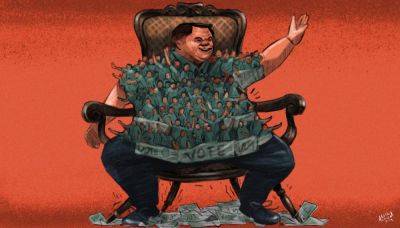8 in every 10 district reps belong to dynasties
Fathers and mothers passing on their government posts to sons and daughters, as if these were family heirlooms, is nothing new.
But election watchdogs said it was jarring to watch political dynasties flaunt their power during the week-long filing of certificates of candidacy (COCs) this October.
It’s as if October 1 to 8 was a scheduled family reunion for political dynasties who, wearing brand colors, trooped together to Commission on Elections (Comelec) offices across the country to formalize their election bids.
Videos that flooded social media showed a fiesta-like atmosphere as political clans were welcomed by supporters at the venue. In some instances, there were dances, marching bands, and colorful tarpaulins.
A family photo was always taken, streamed live online, followed by interviews where they talked about passing down their elective positions as if they were theirs to give.
“If before the approach was more discreet, not all at once, now it seems like they’re even using the brand,” former Comelec commissioner Luie Tito Guia told the Philippine Center for Investigative Journalism (PCIJ).
An uproar followed the COC filing. Rona Ann Caritos, executive director of the Legal Network for Truthful Elections (Lente), said it is an opportunity to recall why political dynasties were prohibited by the framers of the 1987 Constitution.
The prohibition remains unenforced because Congress has yet to pass an implementing law.
“We’ve been through many elections, and this (the rule of political dynasties) has always been the problem. But because some famous personalities, along with their family members, filed under such circumstances, it became a bigger concern,” Caritos said.
But can Congress be expected to pass a law against political dynasties?
Political science professor Julio Teehankee defines political dynasty as “the concentration, consolidation, or perpetuation of political power in persons related to one another.”
“Kapag may kamag-anak ka (When you have relatives), based on proposed laws, who are related by consanguinity or affinity — consanguinity by blood of affinity in law — some say it should extend up to the third degree, while others want it limited to







